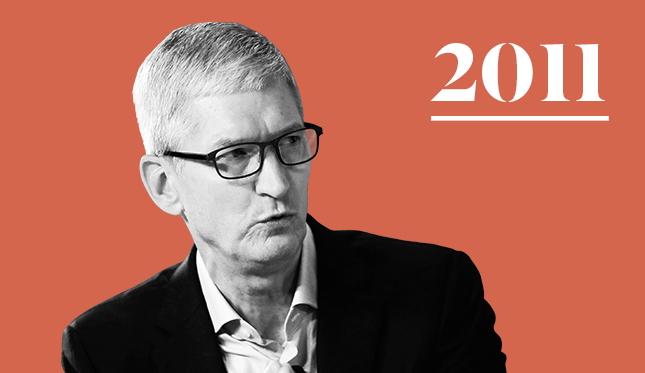The CEO of Apple topped the Power 100 list in 2011. Here, Worth looks back at Tim Cook’s path to power, the power play that landed him in the top spot and where he is now.
What We Said Then
Path to Power: Born in Alabama in 1960, Cook earned an engineering degree from Auburn and an MBA from Duke. Starting in 1982, he spent a dozen years working at IBM, then moved to Intelligent Electronics in 1994 and Compaq in 1997. Steve Jobs poached Cook from Compaq after just six months to revamp and oversee manufacturing, distribution and supply operations. While not a design genius like Jobs, Cook
Power Play: Imagine the pressure. Though some say that Cook has already been running Apple for years because of Jobs’ fight against cancer, an official assumption of the reins must still be daunting. Apple, which was for a brief while in August the country’s most valuable company, may well be its most important. It is one part of the American economy that, unquestionably, works. Apple
Where Cook is Now
There has been a slowdown in iPhone sales and increased competition from companies like Samsung and Huawei, but Apple—and Cook—remains a formidable economic force. He introduced big-screen phones and Face ID; struck a deal with China Mobile, the world’s largest wireless carrier; and is making moves into services like TV, music streaming and gaming and even plans to launch the Apple Card credit card this summer. The company has a staggering $225 billion cash on hand. And Cook’s impact goes to the heart of some of business’ most pressing issues today: privacy and inclusion. Cook, who became the first major CEO to come out as gay, told a 2014 shareholder meeting, “We want to leave the world better than we found it.”








